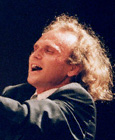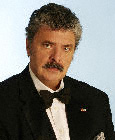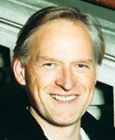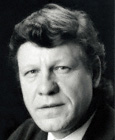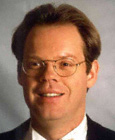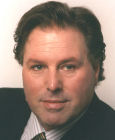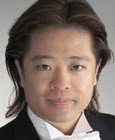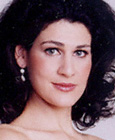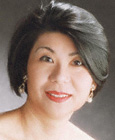|
|
|
New Production
R. Wagner : Die Meistersinger von Nürnberg<opera in 3 Acts>
<sung in German with Japanese supertitles> OPERA HOUSE |
<Sample Movie> Please click here
<OPERA TALK> Please click here
STAFF |
||||||||||||||||||||||||||||||||||||||||||||||||||||
|
||||||||||||||||||||||||||||||||||||||||||||||||||||
CAST |
||||||||||||||||||||||||||||||||||||||||||||||||||||
Alternatively, Richard Brunner is taking his place. Please refer to New National Theatre News. |
||||||||||||||||||||||||||||||||||||||||||||||||||||
PERFORMANCES |
|||||||||||||||||||||||||
Doors
will open 45 minutes before the opening of the performance.
Approximate running time: 5 hours and 50 minutes |
|||||||||||||||||||||||||
ADVANCE TICKETS |
|
| Available from Monday 18 July, 2005 at 10:00am. To order tickets, please call +81-3-5352-9999 (10:00am-6:00pm). Internet ticket reservation available through the following Websites.(Japanese only) http://pia.jp/t http://eee.eplus.co.jp/ |
|
TICKET PRICES (with tax) |
||||||||||||||||||||
|
||||||||||||||||||||
|
*A part of "Seat F" (¥4,200) : Sold at the NNTT Box Office and
all Ticket Pia outlets on the performance date only. Up to 2 tickets per person.
No phone reservations. *Seat Z(\1,500): Sold to
students only at some Ticket Pia outlets on the day before the performance. Any
tickets not sold by the performance date will be released to the general public
at the NNTT Box Office and some Ticket Pia outlets. One ticket per person. No
phone reservations. Students must bring a valid student ID. *Same
day student tickets (50% off, except Seat F & Z ): Sold at the NNTT Box
Office and some Ticket Pia outlets on the performance date. One ticket per person.
No phone reservations. Students must bring a valid student ID. *Opera House Ticket Prices & Seating Plan |
![handbill [R. Wagner : Die Meistersinger von Nurnberg]](../../../season/s273/image/bill273.jpg)
(Bernd Weikl, Stage Director)What did Wagner want to convey through his music and literature? He had dreams
and wanted to use his music to create a utopia. Meistersinger has a tragic history:
the spirit of this work, which praises Germany, was once used as a tool for promoting
nationalism and fascism during Hitler's time. Moreover, even today, many journalists
are inclined to find anti-Semitic elements in the opera. In fact, there is not
the slightest trace of extolling fascism, and this work shows the foolishness
of xenophobia. This is what I would like to demonstrate to the world through my
direction of the opera. I know the perfect moments when singers should sing and
take act in the opera. I will first give priority to songs, so that the singers
can performance as well as possible, and then add the most appropriate and effective
movements to produce dramatic effects. By doing so, I hope I will be able to build
a bridge that will run from the period when Wagner wrote music, to the 20th century,
and to the present, thus realizing a utopia within the theater. Look forward to
the forthcoming production, as I trust that it will impress all of you. "Old" and "New" in ArtDie Meistersinger von Nürnberg (The Mastersingers of Nuremberg) is Wagner's only comedy other than his early works, but refined discussions about art woven into this opera cannot be overlooked. In this work, Wagner raises the question of correlations between "old" and "new" in art, setting the art of the rule-constricted, rigid Mastersingers against that of Walther, a child of nature. The conflict between the two invigorates the progression of the drama, and Walther's art soon garners the wide support of people through the empathy and understanding of Hans Sachs, one of the Mastersingers. But the question of "old" and "new" does not remain on the level of the plot. While the composer brought chromaticism to its limit in his previous opera Tristan und Isolde, in this work he chose to effectively combine various kinds of musical language he had at hand. This method may look moderate, but he used an extremely innovative idea for a composer of his time. This is shown when Sachs sings about Walther's song in his so-called Flieder (elder) monologue: "I can feel it but cannot understand it. I cannot remember all of it by any means, but it is unforgettable. I can grasp it but cannot measure it. In the first place, how can I measure something that is hard to grasp? It does not fit any rule, but even so, there is nothing wrong with it. It is an old yet new sound---the lovely song of a May bird." After long months of winter, the song of an old bird can sound new---this is where Wagner conveyed his ideal for the rebirth of art. Enjoying Meistersinger
through Lies, a Source of Vitality for Comedies
The setting is Nuremberg in the mid-16th century. Hans Sachs, a cobbler, learns
that Walther von Stolzing, a young knight who is visiting the city, has fallen
in love with his neighbor's daughter Eva. He acts as an intermediary between Walther
and Eva by foiling Sixtus Beckmesser, a city clerk, in his attempt to marry Eva,
and letting Walther win in a singing competition... This would be a rough
summary of the story of Die Meistersinger von Nürnberg. The spirit
of a comedy dwells in its details, however. Isn't what is important in details
"lies," a source of vitality for comedies? Of course, the lies referred
to here include not only their original meaning---making a statement that contradicts
the facts--but also saying what one does not think, not giving an answer though
one knows it, and not saying what one should say. For example, Walther says, "I
headed straight for Nuremberg because my only true concern was art" (Act
I Scene 3). This is a lie because he knows that he cannot marry Eva unless he
becomes a Mastersinger. The true reason he has wandered into the city is likely
that he has become unable to maintain his fief and castle. And the reason Sachs
says what he does not think about Walther, "Stop acting violently here and
put the finishing touches on your career somewhere else," is that he is telling
a lie to see how Eva responds (Act II Scene 4). As expected, Eva becomes enraged,
but given that she had previously asked Sachs a tricky question, saying, "I
was convinced that you would marry me because that you thought of me being as
being a daughter," it could be said that the two ended up getting the best
of each other in a contest of lies. Eva's father Veit Pogner, not telling his
daughter that Walther failed the qualifying test, equivocates, "Well, it
seems that I have become slow-witted" (Act II Scene2). And Sachs says "The
judge should make a decision without being bound by love and hatred" from
the rules of songs and voices his doubt to Beckmesser, who is very excited after
listening to Walther sing. (Act 1 Scene 3). Eva's suitor judges her lover, making
Sachs's opinion look fair at face value, but if so, he should have quoted the
rules before the test was given. He did not say what he should have said, but
chose the right time and launched a personal attack most effectively. This is
not the only lie Sachs tells. In Act III Scene 3, he presents Beckmesser with
two difficult choices: stealing or artistic theft. Look forward to Sachs's lies.
|
|
||||||||||||
|
||||||||||||
|
||||||||||||
